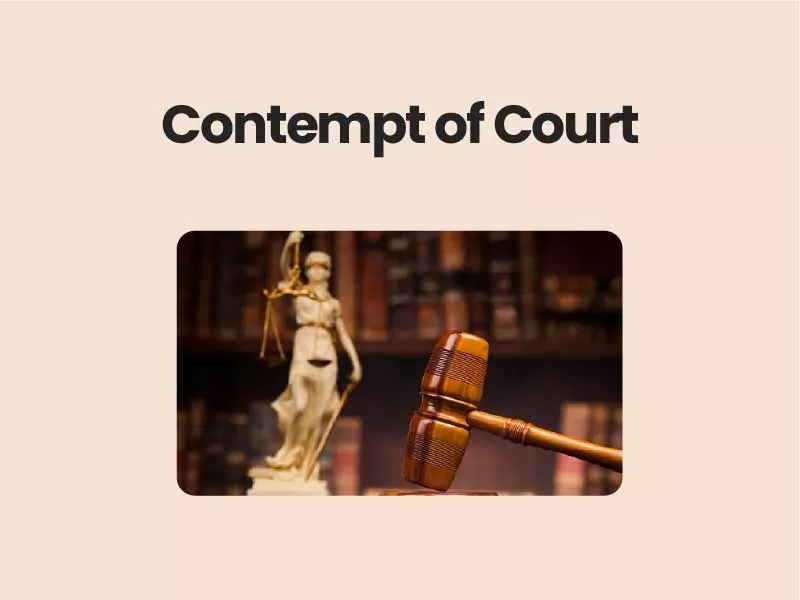Companion@360 → 7 Month programme to sharpen your writing skills → REGISTER NOW

Contempt of Court
Contempt of Court refers to the offense of showing disrespect to the dignity or authority of a court. The objective for contempt is stated to be to safeguard the interests of the public if the authority of the Court is denigrated and public confidence in the administration of justice is weakened or eroded. The Supreme Court and High Courts derive their contempt powers from the Constitution.
Read Virtual court
The Constitution also includes contempt of court as a reasonable restriction to the freedom of speech and expression under Article 19, along with elements like public order and defamation.
- Separately, Article 129 of the Constitution conferred on the Supreme Court the power to punish contempt of itself.
- Article 215 conferred a corresponding power on the High Courts.
- The Contempt of Court Act, 1971, outlines the procedure in relation to investigation and punishment for contempt.
- The Act divides contempt into civil and criminal contempt.
- Civil contempt refers to the willful disobedience of an order of any court.
- Criminal contempt includes any act or publication which:
-
- Scandalises the court,
- Prejudices any judicial proceeding
- Interferes with the administration of justice in any other manner.
- ‘Scandalising the Court’ broadly refers to statements or publications which have the effect of undermining public confidence in the judiciary.
- The punishment for contempt of court is simple imprisonment for a term up to six months and/or a fine of up to ₹. 2,000.
- There was an impression that the judiciary tended to hide any misconduct among its individual members in the name of protecting the image of the institution.
- The Act was amended in 2006 to introduce truth as a valid defense if it was in the public interest and was invoked in a bonafide.
